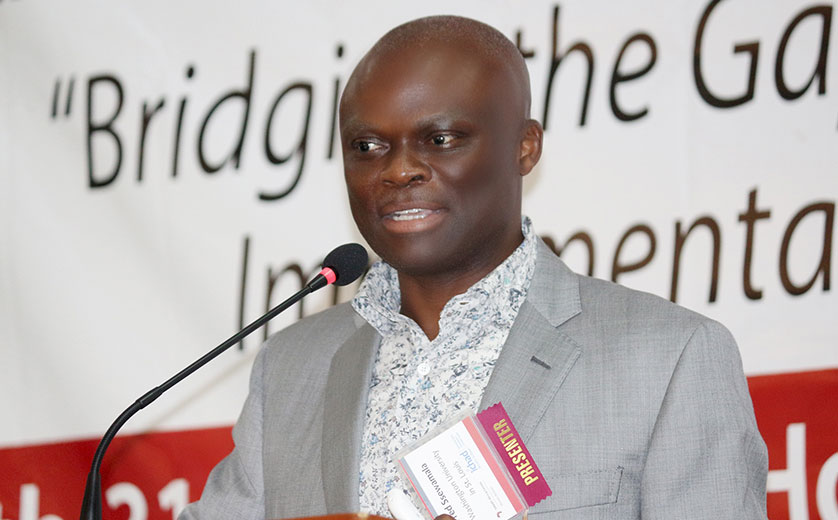Researchers at the Brown School recently received awards from the NIH to continue their work in global mental health research.
The International Center for Child Health and Development (ICHAD) received over $1.3 million from NIMHD to lead the five-year program “Training LEADers to Accelerate Global Mental Health Disparities Research” (LEAD) under the co-leadership of Fred Ssewamala, William E. Gordon Distinguished Professor, and Patricia Cavazos-Rehg (pictured right), associate professor in the department of psychiatry at the School of Medicine. The program is designed for pre-doctoral students and post-doctoral trainees from underrepresented groups in the U.S. who are committed to conducting health disparities research around global mental health. LEAD seeks to equip trainees with foundational global research skills and knowledge through experiential learning and personalized mentoring, and will be held as a summer institute. Recruitment for the first cohort will begin in fall 2019.
SMART Africa Center, co-led by Ssewamala and Mary McKay, Neidorff Family and Centene Corporation Dean of the Brown School and supported by Research Assistant Professor Ozge Sensoy Bahar, received over $300,000 from NIMH to examine the cost-effectiveness of the SMART Africa multiple family group intervention aimed at improving children’s physical, behavioral, and mental health outcomes. The Brown School research team will collaborate with their colleagues at New York University led by Yesim Tozan, assistant professor of global public health, to conduct this research study.
“There is little existing knowledge around the cost-effectiveness of these evidence-based interventions, which has implications for their implementation and scalability, especially in resource-limited settings. This work will be essential in informing future policy decisions and program investments,” said Ssewamala.
For more information, visit the website.
